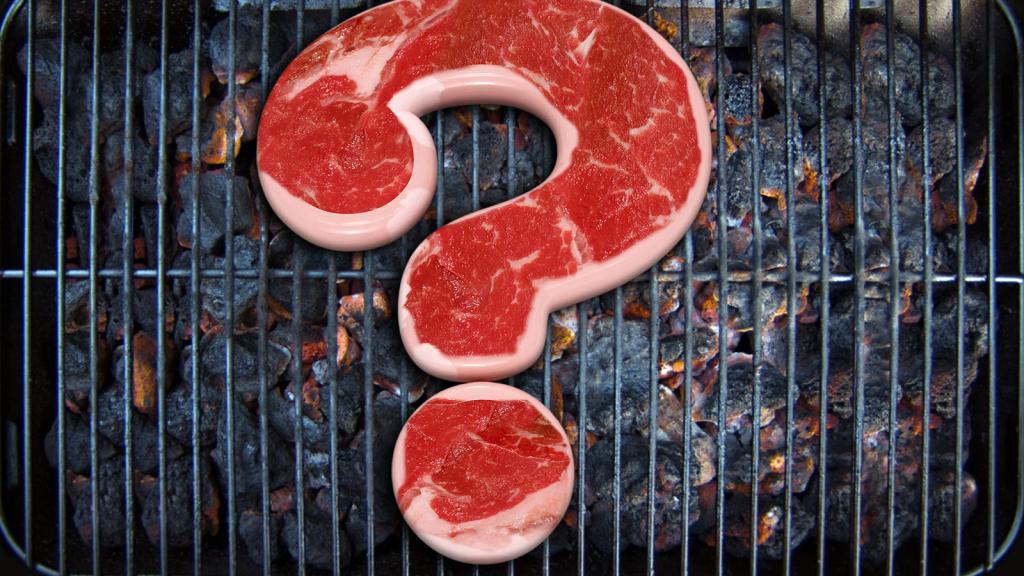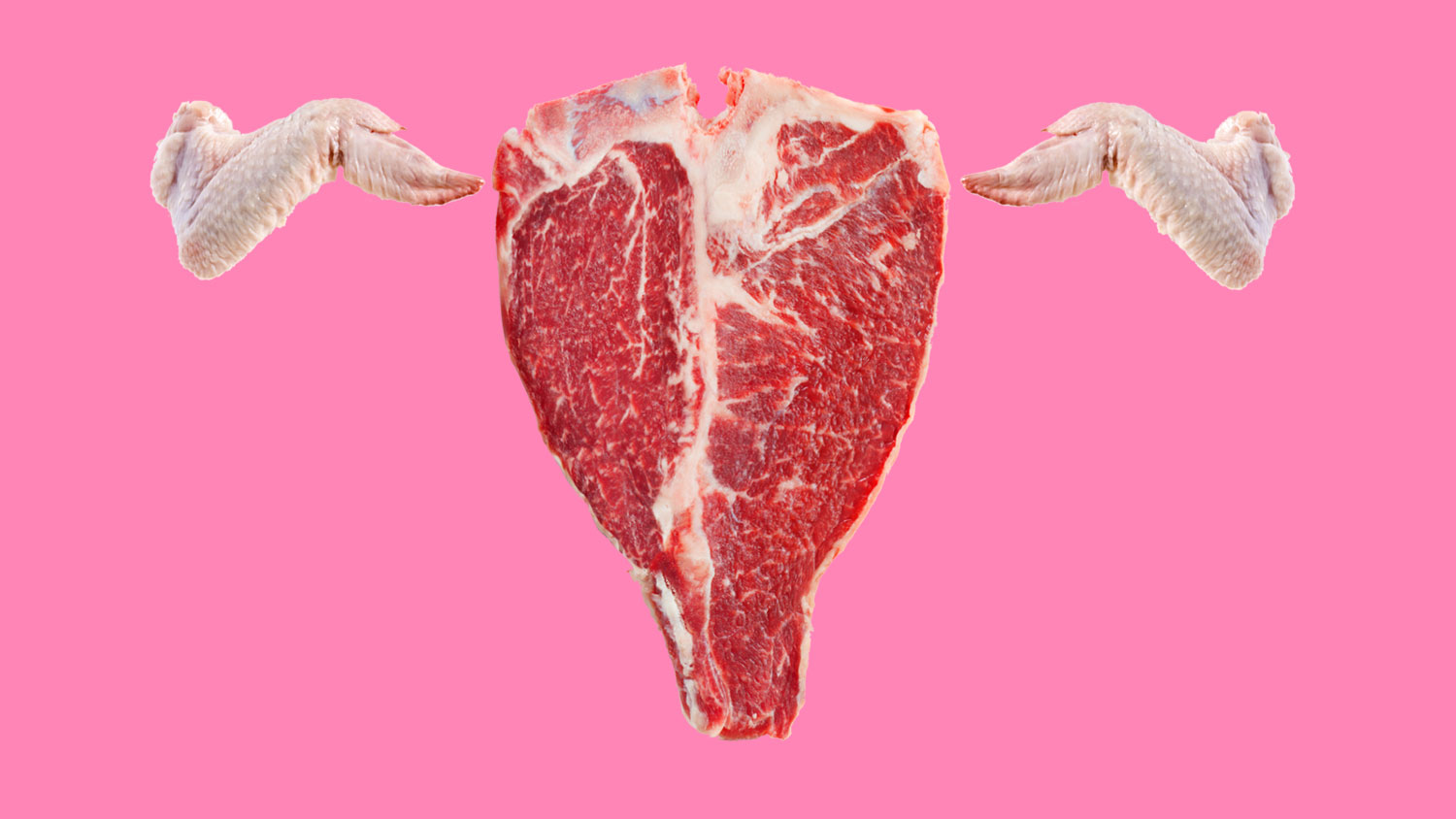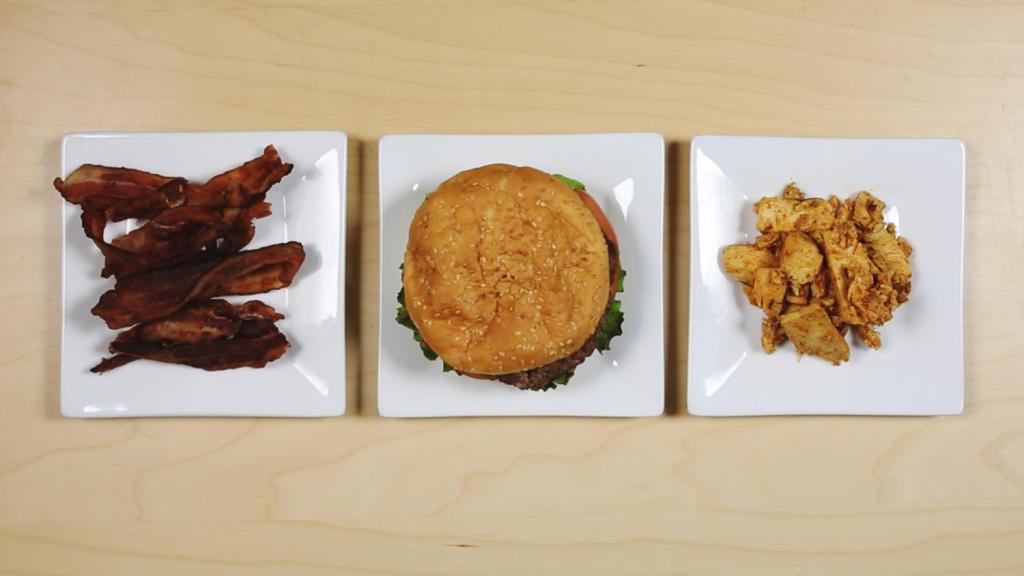When I was little — 7, 8 years old — I used to be able to put away a steak with a gusto that my father remains proud of to this day. He happily recounts a meal we had in snow-covered central Wisconsin: A table full of my WASPy relatives watched, awestruck, as a tiny girl quietly devoured a massive steak with minimal ceremony. For as long as I can remember, one of my most beloved father-daughter traditions has been steak frites night — just the two of us, eating towering plates of grilled red meat and fried potatoes.
My father’s charcoal expertise notwithstanding, my mother has always been the cook in our family — expertly and effortlessly whipping up delicious, multi-course meals nearly every night of the week for three children of varying, mind-boggling degrees of pickiness. But when it comes to eating, her approach is, to say the least, restrained, always insisting on tiny portions: the smallest piece of chicken, the most modest heap of salad, the narrowest slice of cake, and no steak at all, thank you. Her repeated declaration: “This is all I want!”
[grist-related-series]
And so the construction of “what a woman eats” slowly made its way home for me: small portions, and very little, if any, meat. Which is a problem, because — for as long as I can remember — when I’m at my hangriest, I crave nothing more than a massive hamburger. But during my self-conscious and anxious teen years, I would never be caught eating something so heavy or meaty in front of boys; I would bring little more than rice and carrots for lunch to the high school cafeteria and nibble on bowls of sliced cucumbers in the college dining hall. Displaying any sort of appetite felt somehow deeply unattractive, and demonstrating restraint felt right. Somewhere along the line, I absorbed the idea that gentlemen prefer girls eating salad. (This has even been suggested by one dating site poll.) And then, all of a sudden, I found myself returning home from my freshman year of college weighing 103 pounds.
There’s something about meat — the juices, the succulence, the just-singed skin — that feels uniquely indulgent. There’s also something masochistically rewarding in denying oneself that gratification — which is how, in certain cases, vegetarianism (or, more commonly, veganism) can serve as a cover for an eating disorder. Naomi Wolf’s The Beauty Myth describes the moment at which Wolf embarked on a bout with anorexia at 13:
That evening I let the juice of the lamb chop congeal on my plate. I could see viscous nodules of fat, a charred outer edge of yellow matter, cooling from liquid to solid, marked USDA CHOICE in edible blue dye. The center bone, serrated, had been cloven with a powerful rotary blade. I felt a new feeling, a nausea wicked with the pleasure of loathing. Rising hungry from the table, a jet of self-righteousness lit up under my esophagus, intoxicating me. All night long I inhaled it.
This is not at all to say that a meat-free diet is disordered or inherently masochistic. There are myriad environmental and health arguments to adopt a vegetarian or vegan diet, and none of them have to do with a desire to restrict oneself. As a friend who didn’t eat meat for 13 years put it to me: “I had a hundred reasons to become a vegetarian, and only one to keep eating meat.” Many vegetarians genuinely dislike the taste of meat and enjoy meat-free diets that are wholly healthy, nutritious, and well-rounded. And just the same, many abandon vegetarianism because they just miss bacon. A study published this year by Faunalytics (formerly the Humane Research Council) found that 33 to 37 percent of vegetarians abandoned a flesh-free diet because they craved some form of meat. (That friend, by the way, gave up vegetarianism last year.)
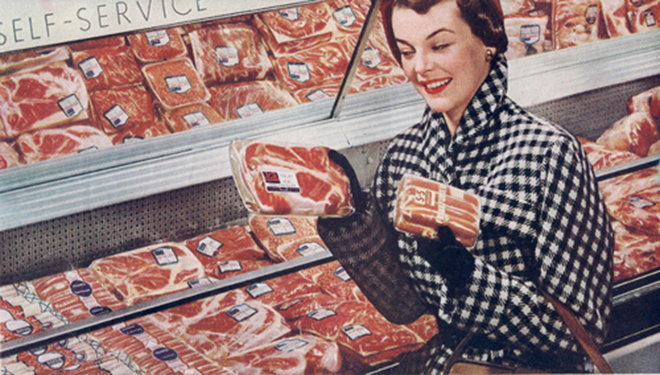
I talked to Christopher Gardner, professor and nutrition expert at the Stanford Prevention Research Center. Gardner himself is a vegan, but explained to me the benefits that meat can offer — and why said benefits are particularly important to women:
“Women have a menstrual cycle, and they lose blood and they need iron — and meat is a better source of iron, nutritionally, than anything else. Meat, especially red meat, has a higher content of iron and a kind that’s absorbed better [by the body] and is more bioavailable than the kind that I would get from grains or beans,” he says.
And yet, of the 11,000 Faunalytics survey participants, 74 percent of current vegetarians/vegans and 69 percent of former vegetarians/vegans were women. (Because women made up 58 percent of those surveyed, these figures are not necessarily indicative of the U.S. population on the whole.) The most significant reason for choosing a meat-free diet, according to the survey, was health.
Now, “health” carries all kinds of complexities. For one thing, the sort of medical research that determines whether or not a reduced- or no-meat diet is healthy for women — some argue that the fat in meat, for example, can actually be uniquely beneficial to women — can be flawed by uneven gender distribution in research subjects. More broadly, today, health has come to be synonymous with cleanliness. And that’s really messy.
“You’ve got to look at our societal trend of perfect eating — clean eating is somehow this desirable thing to do,” says Rebecca Scritchfield, a D.C.-based dietician. “But that really supports the idea of good and bad food, and moral judgment around foods, and even moral judgment around the person for eating something.”
The “clean eating” movement — espoused by Gwyneth Paltrow, Beyoncé, and other aspirational figures of lady-mag culture — minimizes or eliminates meat consumption, and is not necessarily a bad thing. Of course we should be considering both the provenance and quality of our food. But “cleanliness” as a priority has some eyebrow-raising implications — this is food, after all, not a bathroom sink — and, as with anything, it can be taken to extremes.
That may be because the idea of cleanliness can’t help invoking cultural expectations of purity. A 2006 study by Chen-Bo Zhong published in Science demonstrates how we associate moral and physical cleanliness: “Threats to moral purity activate a need for physical cleansing, which can assuage moral emotions and reduce direct compensatory behaviors,” Zhong writes. We are drawn to juice cleanses and all-salad-everything because they promise to rid us of toxins, shed fat, absolve us of burritos, and return our systems to their leanest, purest states.
Says Scritchfield: “Clean eating, first of all, doesn’t have a real definition, but what it’s taken on to mean is this very rigid looking at every single ingredient. I definitely believe and support in caring about the quality of your food, but clean eating kind of perpetuates these rigid rules of ‘good’ and ‘bad’ with food. It takes it to an extreme that I don’t believe most people can adhere to — and then we feel bad if we don’t.”
Even Beyoncé, after her widely publicized stint on the vegan diet “The 22 Day Challenge,” went back to eating meat — and was roundly ridiculed for it. This “damned if you do, damned if you don’t” mentality likely resonates for any woman who’s tried to navigate the wildly contradictory expectations of our sex in modern society.
There’s obviously a backlash to the expectation that women be clean and pure and eat that way, too — ergo, the “snackwave” movement. From Hazel Cills and Gabby Noone’s explainer in The Hairpin:
Health food culture is often a thinly disguised way of policing women’s bodies. Rather than celebrate not eating at all, health food culture suggests that women embrace a #yesfilter view of salads and yogurt; staying thin and taking to their social media to express their enthusiasm over their choices.
In a way, snackwave is a protest against this mindset. Snackwave is about taking pleasure in foods that are deemed off-limits for women who want to stay thin and traditionally attractive. Food becomes cartoonish and goofy, rather than a constant test of whether or not you’re treating your body the way the world (i.e. menz) wants you too.
Most recently, the band Childbirth — featuring Bree McKenna, bassist from Tacocat — just released “Nasty Grrls”, an ode to girls being gross (sample lyrics: We dip everything in ranch/We pee in the shower). Childbirth’s band photo is a clear parody of the “women smiling while eating salad” stock photo.
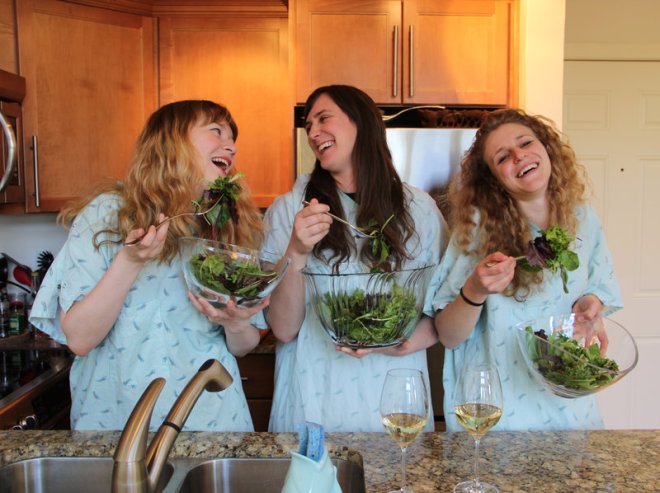
The members of the Seattle band Childbirth. From left to right: Bree McKenna, Stacy Peck, Julia Shapiro.Shaine Truscott
“There’s so much advertising and so many visuals in the media of women having the time of their life eating salad or yogurt or cleaning the house — it’s just kind of a hilarious thing in culture right now. Or if it’s a woman eating anything else, she’s in a bikini — she’s eating a burger, but it’s in a sexual way,” says Stacy Peck, Childbirth’s drummer.
The Sexual Politics of Meat, Carol J. Adams’ anthem to the union of feminism and vegetarianism, likens the treatment of women’s bodies in the media to the treatment of meat: domesticated, produced, portioned up into respective parts, and sold for profit. Adams’ (questionable) logic is that women eating meat is akin to women condoning and perpetuating their own objectification.
When I bring up the feminist debate around meat to Camas Davis, owner and founder of the Portland Meat Collective, she gives a heavy sigh. “I do get called an anti-feminist — as well as a Nazi, which is interesting — on a pretty regular basis,” she says. “I find all of those debates to be really not very well thought-out. But in college, being feminist and being vegetarian went hand-in-hand.”
Davis, who now teaches butchery and advocates for more sustainable ways of eating meat — “eat better meat, and less of it,” she says — was a vegetarian for about seven years, and then crossed back over to meat eating. After realizing that her limited knowledge of how the sausage is made, so to speak, was affecting her ability to report as a food journalist, she moved to France to learn how to butcher.
Davis shared the most common reaction she’s encountered as a woman in the very male world of butchery.
“I’m even hesitant to call myself a butcher, and maybe that’s a female thing too,” she says. “I usually get looked up and down — I happen to be tall and slender and blonde-haired and blue-eyed, whatever — and then there’s something said along the lines of, ‘How does a woman like you do that?’”
I asked Davis why we have so much guilt around eating meat. “The basic notion that the way meat is raised is kind of bad, gross, scary, inhumane — that’s all been floating around long enough that people feel like, ‘Hmm, maybe I shouldn’t do this.’ We’re fearful of the mystery, and [then] there’s bound to be some guilt around continuing to eat it anyways. And then even in our [butchery] classes we have a lot of people who have this ingrained guilt about eating meat or fat,” she says.
As Davis explains to me, every meat product that tastes good is so delicious because of the fat in it — and animal fats have been widely villainized, particularly for women who are “watching their figures.” Davis isn’t arguing that all women oppressed by the rigidity around “eating correctly” take to the streets with a pork leg in one hand and a 72 oz. steak in the other. (She tells me that she hardly ever eats steak herself.) Her chosen approach to the whole meat debate is simple, and has been echoed by the likes of Dan Barber and Mark Bittman: “Eat meat as an accent to a meal, not as a main course.”
“One could say that that’s kind of a feminine approach to meat-eating, in some ways,” Davis tells me. “You could argue that the movement toward eating less meat is kind of a feminine movement, maybe — or feminist! Who knows?”
We know this: A rigid, all-or-nothing, self-castigating approach to meat-eating — or any eating — can be more detrimental than it is healthy. “Clean” is meaningless — it is not the same as “good” or “sustainable” or even “healthy.” As a woman, you have a body that is not immaculate, and it certainly shouldn’t have to be. The most important thing is to just listen to what it wants. Sometimes you actually will crave salads and yogurt for an entire week, and that doesn’t make you an advertising cliché.
And sometimes you’re on your period, and you just really need a burger.
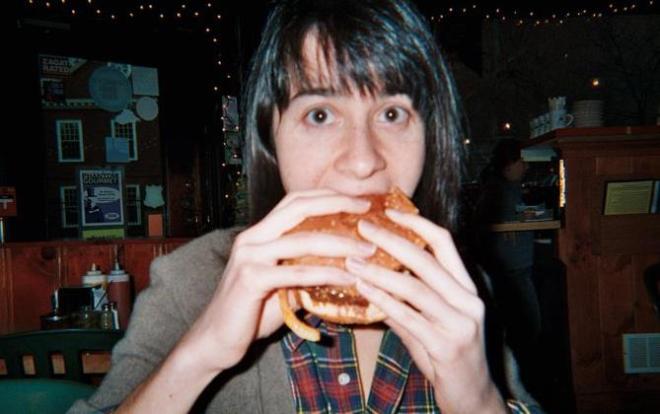
The author, really needing a burger.Anna Slavin
